Special Edition for the 5th Conference of States Parties to the UNCAC
Too Big to Fail: A Concerted Push for a Stronger UNCAC
Vincent Lazatin, Chair, UNCAC Coalition [15 November 2013]
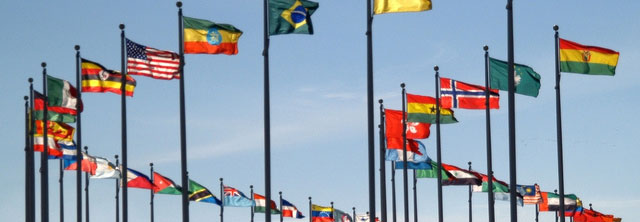
A decade after the adoption of the UN Convention against Corruption, it is time to assess its achievements, determine its path for the future and demonstrate the political resolve it will take to continue to fight corruption. Continue reading →
Access to Information Needs More Legal Protection
Lydia Medland, Access Info Europe [30 October 2013]

What does access to information mean in the context of the fight against corruption? When the public and civil society both have access to information about government activities, it reduces the chances for corruption and mismanagement to occur. Such transparency can also help authorities to address such malpractice and other offences. Continue reading →
Beneficial Ownership Transparency in the UNCAC
Christine Clough, Global Financial Integrity [9 November 2013]
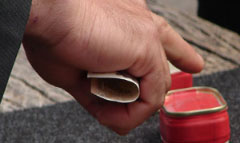
When corporations and trusts mask the identity of the controlling person or entity on an account, financial institutions cannot apply anti-money-laundering provisions, investigators cannot prove wrongdoing and justice systems cannot return the stolen assets.
Continue reading →
Making Sure Settlements Deter Corruption
Gillian Dell, Transparency International Secretariat [8 November 2013]

Settlements in corruption cases are useful to avoid long, costly trials. But if the settlement terms are not subject to court approval and go unpublished, doubts can arise about the standards applied. If the penalty is low and the accused does not admit guilt, the criminal behaviour will not be deterred. Continue reading →
Immunity: Does It Protect the Corrupt?
Anne-Claire Blok, UNCAC Coalition [23 October 2013]
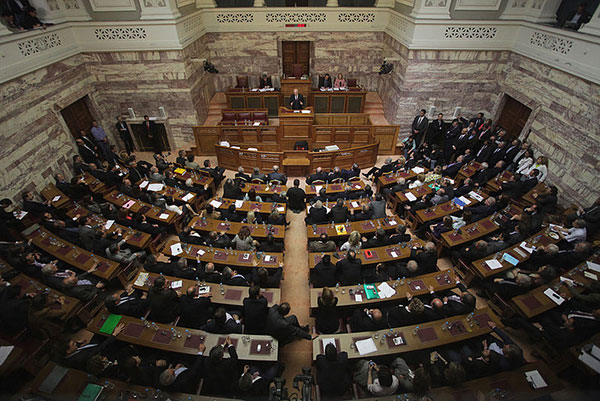
Immunity or jurisdictional privileges can shield public officials from accountability for corruption by protecting them from legal consequences. The UNCAC features a provision on immunities and privileges, requiring states to balance the immunities enjoyed by public officials with the ability to investigate and prosecute corruption offences. But countries struggle with this balancing act. Continue reading →
The Missing Link
Akere T. Muna, Transparency International [12 November 2013]
As the global discourse about stolen assets rages on, banks remain under the radar. The entities they partner with that take money out of many desperately poor countries are named and occasionally shamed. Sometime, they are even the subject of lawsuits. But nothing happens to the banks. Continue reading →
Asset Recovery Must Become a Reality
Maud Perdriel-Vaissière, UNCAC Coalition [29 October 2013]
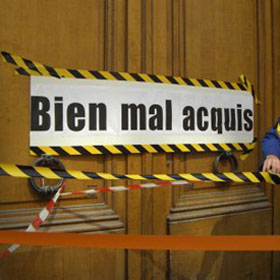
Very little of the billions of illicit dollars flowing to corrupt officials is captured and returned to the appropriate parties or states. The UNCAC Coalition therefore calls on States Parties to adopt four actions to rectify this global problem: proactive enforcement, compensation to harmed countries, information exchange and transparency and accountability. Continue reading →
Strengthening the UNCAC Review Mechanism
Fritz Heimann, Transparency International [14 November 2013]

After three years of operation, the UNCAC Implementation Review Mechanism is off to a promising but uneven start. Transparency International has produced a progress report on the review process, including recommendations for strengthening reviews. Continue reading →
Follow the Rules on NGO Observer Status in COSP Subsidiary Bodies
Gillian Dell, Transparency International Secretariat [4 November 2013]
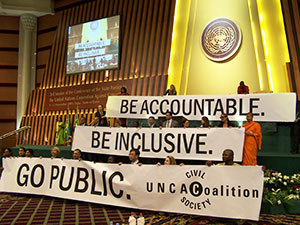
Transparency and civil society participation are essential for anti-corruption work, as nongovernmental organisations can offer valuable expertise and advice for government initiatives. Yet at the UN Office on Drugs and Crime in Vienna, NGOs are excluded from participating as observers in UNCAC subsidiary bodies’ meetings. Continue reading →
Why Is an UNCAC Reporting Procedure Essential?
Gabor Bathory, Transparency International Secretariat [30 October 2013]
A reporting procedure would be a valuable tool for the Review Mechanism of the UN Convention against Corruption (UNCAC), as it would provide important information for following up on serious issues of noncompliance with the convention itself. Continue reading →



